Many years ago, I celebrated my eighteenth birthday in Beijing. I was at the very beginning of a year spent as an English teacher in the distant North-Western province of Gansu. It was in the colourfully chaotic markets of China that I learned the art (and joy!) of haggling. Good haggling tactics were essential if you wanted to avoid staggering out of a market in a dazed state, carrying goods you had never wanted but were somehow coerced into acquiring for more than you wanted to pay.
In case you are planning a tour of the Chinese markets yourself, here are the tricks. First, there is the market pace: a walking gait that allows you to take in every item without slowing and giving away any sign of interest (that’s when someone will grab your arm and not let go until you’ve bought something). Then you’ll need poker skills to judge where to pitch your opening bid: too high and you’re a sucker, too low and the game is off. This bid depends on many factors: the type of market, the quality of the item, the number of other willing fools, even the time of day. Near market closing time, you can throw out a ridiculously low offer, shrug and walk away, and have them chase you down yelling “ok, ok, ok!”
Finally, there’s your patter: your story to counter their claims of “you’re robbing me blind!”, “I won’t be able to feed my family!”. Back then, I stuck to the truth, and that was very effective: “Wo shi lao shi, zai Gansu” (“I am a teacher in Gansu”). The standard reply to this was “Ah! Qiong, qiong, qiong!” (“Poor, poor, poor”), and the acceptance of a lower price. The whole process turns shopping into interactive theatre, with each actor playing their part with gusto. Add in the heady thrill of the gamble, and the pride at getting a good deal, and you can see why it was one of my favourite activities in the country.
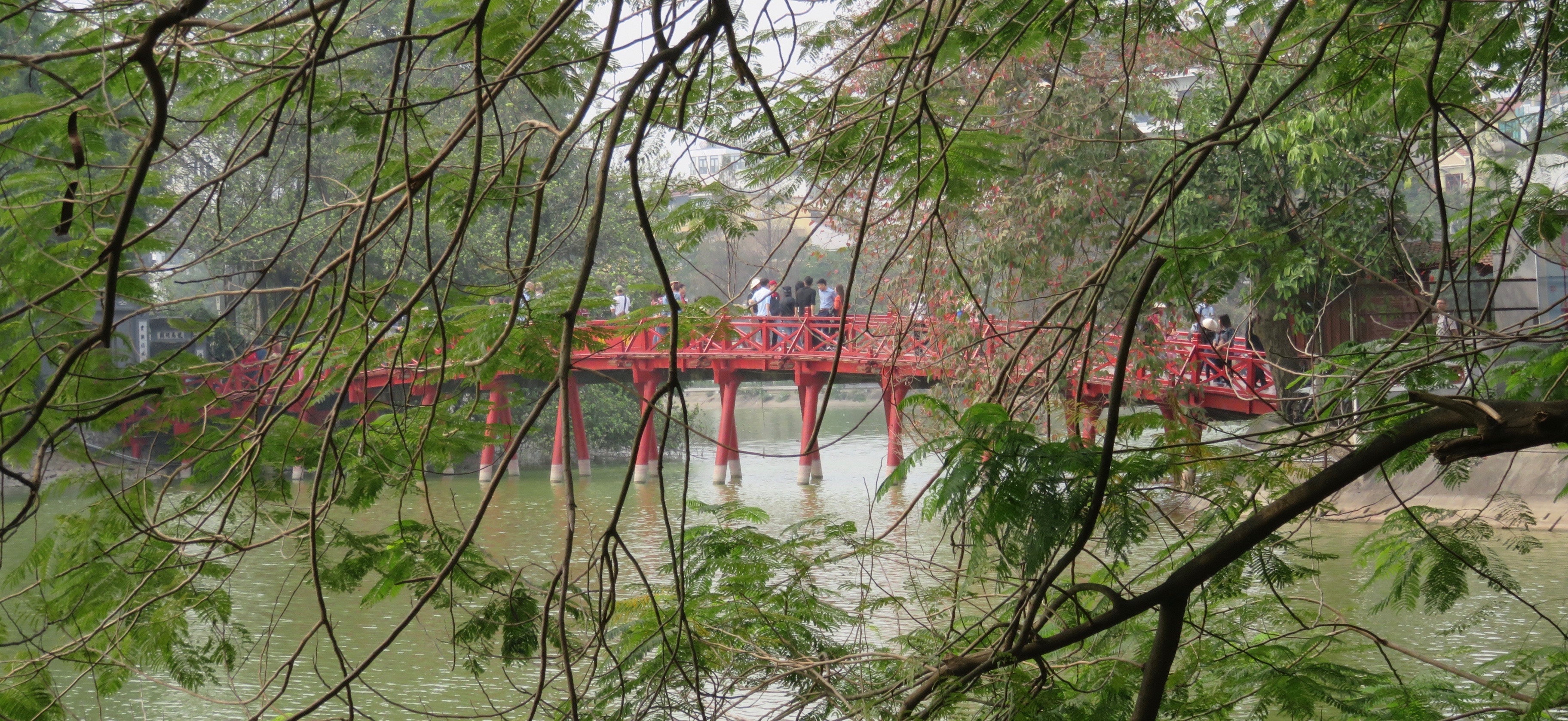 Hoan Kiem Lake in Hanoi, Vietnam
Hoan Kiem Lake in Hanoi, Vietnam
So imagine my disappointment when I recently attempted to get a good price for a small suitcase from the sellers by Hoan Kiem Lake in Hanoi. My guidebook had informed me that the Vietnamese were consummate hagglers so I was expecting the jousting repartee I had loved in China. However, while the Vietnamese may have inherited their entrepreneurial nature from the Chinese, they have honed it into a uniquely Vietnamese, steely approach. The women are the toughest negotiators, and much of the time they won’t negotiate at all. If you try starting the bidding at 50% (often too high a start point in Chinese tourist markets), then you are met with a look of disgust and a wave of the hand. Getting any lower offer is like getting blood out of a stone, and once you’ve got one, that’s it. There’s no use trying to wheedle down another few percent, or get something else thrown in for free. You will meet a wall of obstinacy, sometimes even anger.
Perhaps it is simply that the shop-owners in Hanoi are blessed with too many deep-pocketed tourists and don’t need to negotiate, or perhaps it is a sign of the gritty determination honed from decades of hardship at the hands of one colonising power or another. Deep down, it is about survival and independence. Entrepreneurship is in the blood of the Vietnamese, and it is a do-what-it-takes, dig-your-nails-in kind of entrepreneurship. Women from the countryside will leave their families for months at a time to pound the streets of Hanoi or Ho Chi Minh selling flowers, fruits, tourist knick-knacks. They will sleep in dormitories packed with other women, rise before dawn to collect their goods from the wholesale markets, and then crouch by the roadside until everything is sold. They must be ready to move at a moment’s notice, as the police turn up periodically to chase them away. All this to try to provide a better future for their families at home.
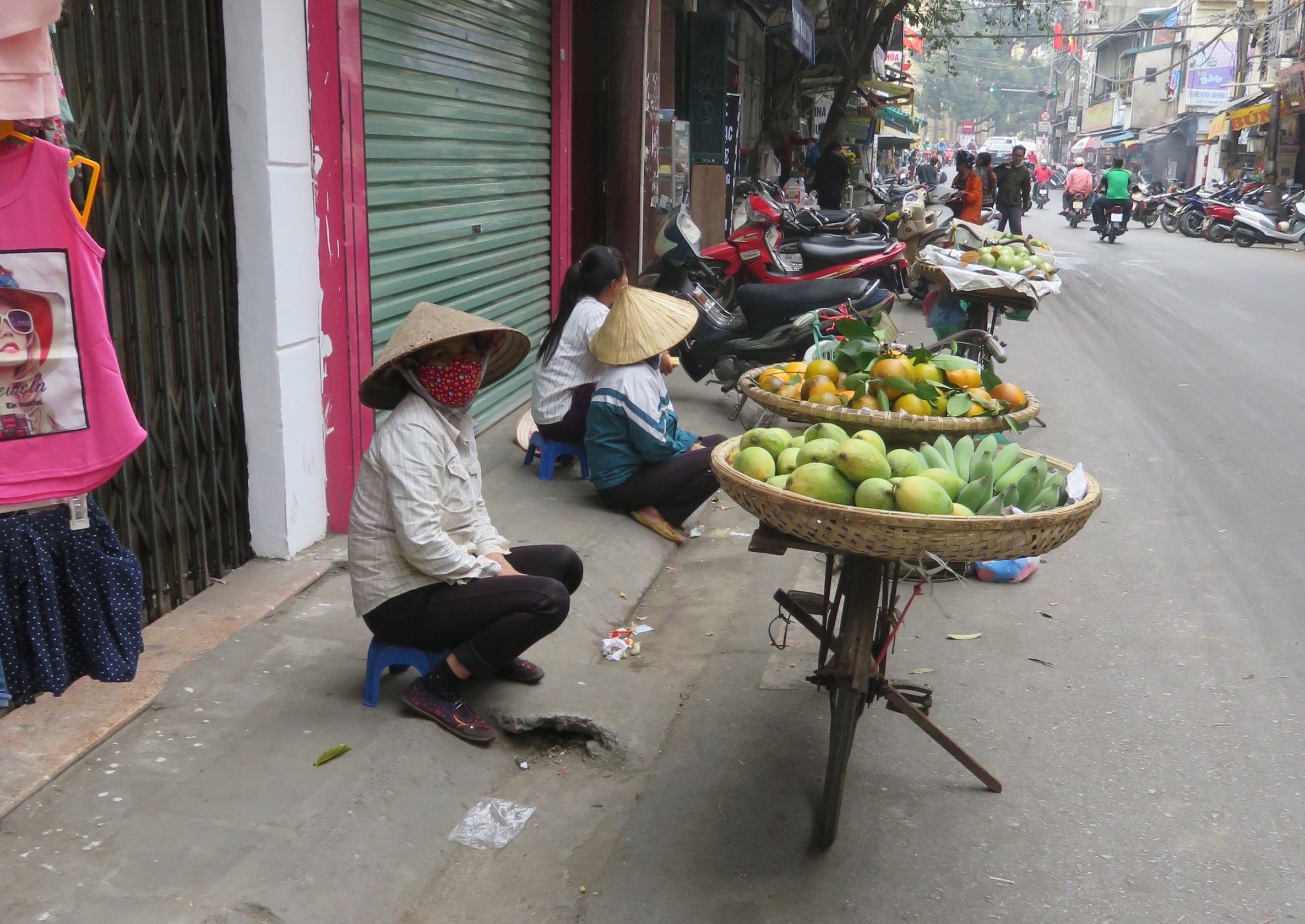 Street sellers in Hanoi
Street sellers in Hanoi
It can be difficult to hear the stories of these women, as I found when I watched their video interviews in the Hanoi Women’s Museum. However, when it comes to Vietnam’s potential as a startup ecosystem, this predisposition towards entrepreneurship and ability to tough it out in a difficult business environment could prove a real benefit. Of course it will take time and training before it would be possible to transfer the small business mentality from street commerce to anything digital, but Vietnam already has a surprisingly strong community of developers coming out of its education system. The bigger difficulty may be in bridging the creative gap. Coders are typically trained to take on the kinds of technically-skilled but uncreative tasks set by outsourcing companies, and the education system is much weaker when it comes to encouraging innovation and new thinking.
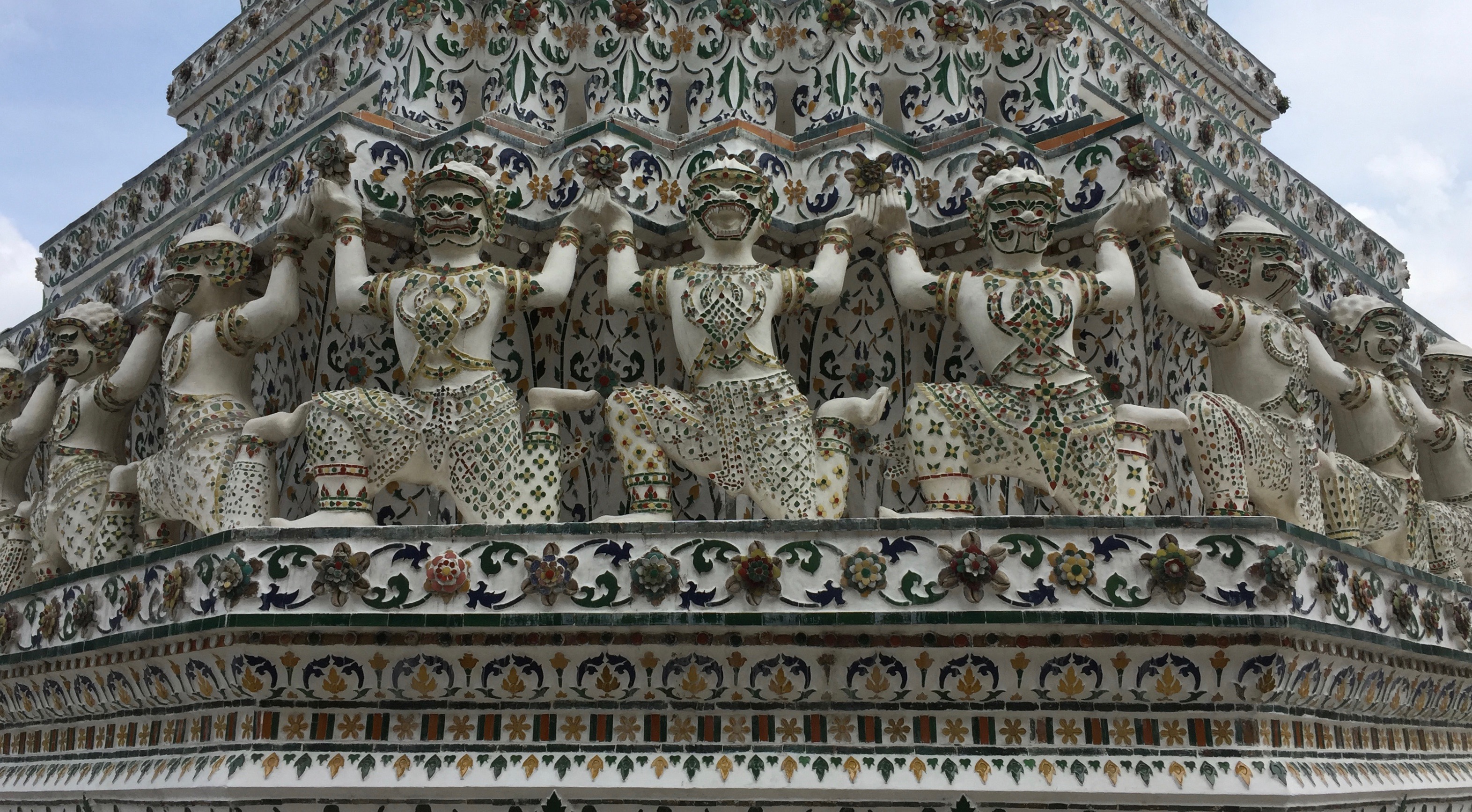 Wat Arun in Bangkok, Thailand
Wat Arun in Bangkok, Thailand
While Vietnam has the entrepreneurs without the creativity, nearby Thailand has an almost opposite problem. The country is rich in creative pursuits, but seems to be lacking in any real commercial drive. If I was disappointed by the hostile negotiations of Hanoi, I was equally nonplussed by the entirely passive sales approach of business owners in Bangkok. I often found myself standing by market stalls or restaurant entrances waiting in vain for anyone to offer me any service, or actively trying to convince taxi drivers to take me somewhere. And forget buying something in the middle of the day, when shop staff would sit at the back of the store eating lunch and studiously ignoring potential customers.
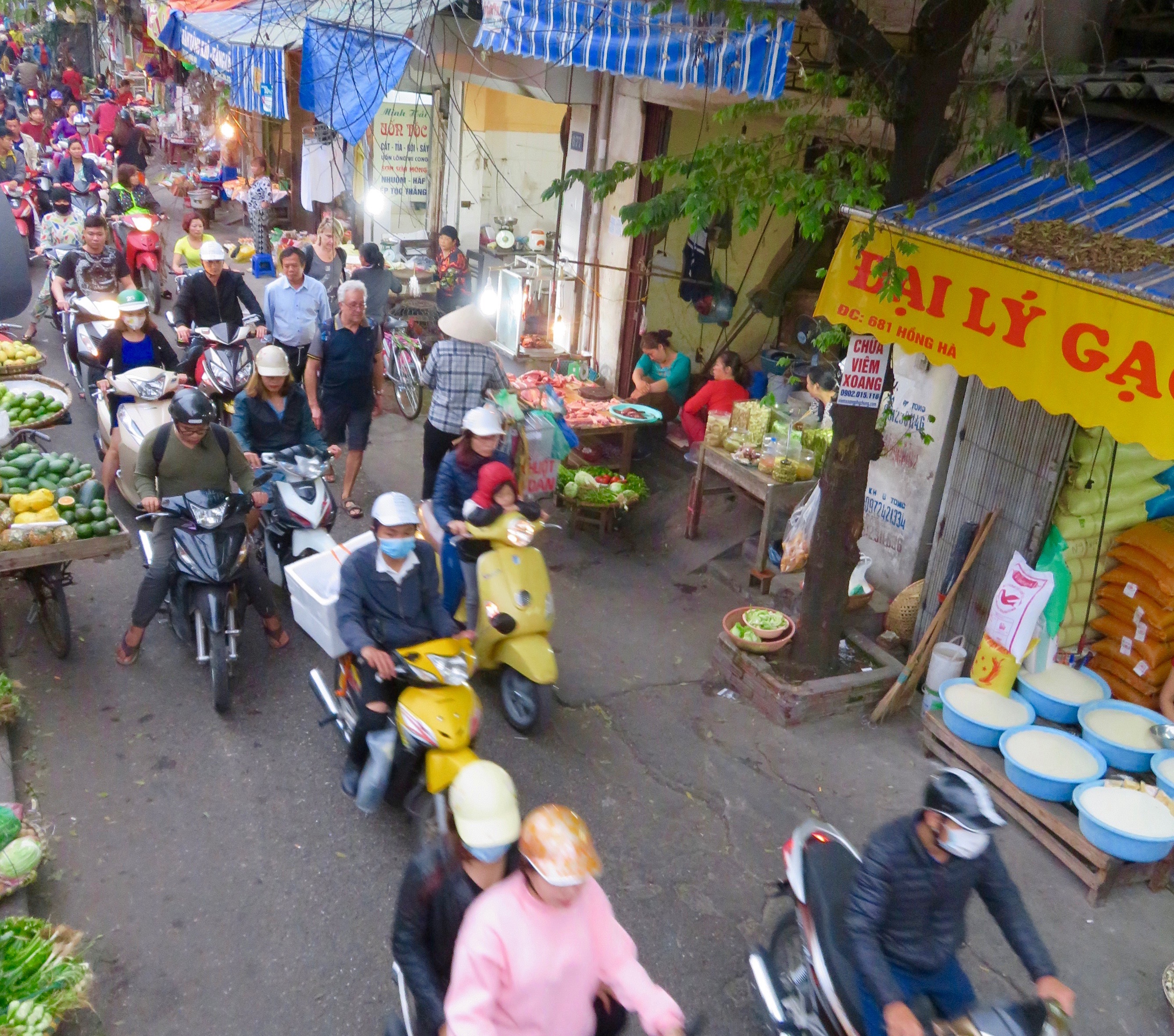 Hanoi traffic
Hanoi traffic
The stark differences between the two countries also played out on the roads. While Vietnam traffic moves with a frenetic energy, a terrifying ballet of interweaving motorbikes in a permanent state of near-collision, Thai traffic doesn’t move at all. The Vietnamese will squeeze through any gap, and spontaneously respond en masse to changing road conditions like a hive mind. Meanwhile, you’ll find Thai drivers sat calmly in unmoving traffic, preferring to wait forever in Buddhist serenity than seek an alternate route.
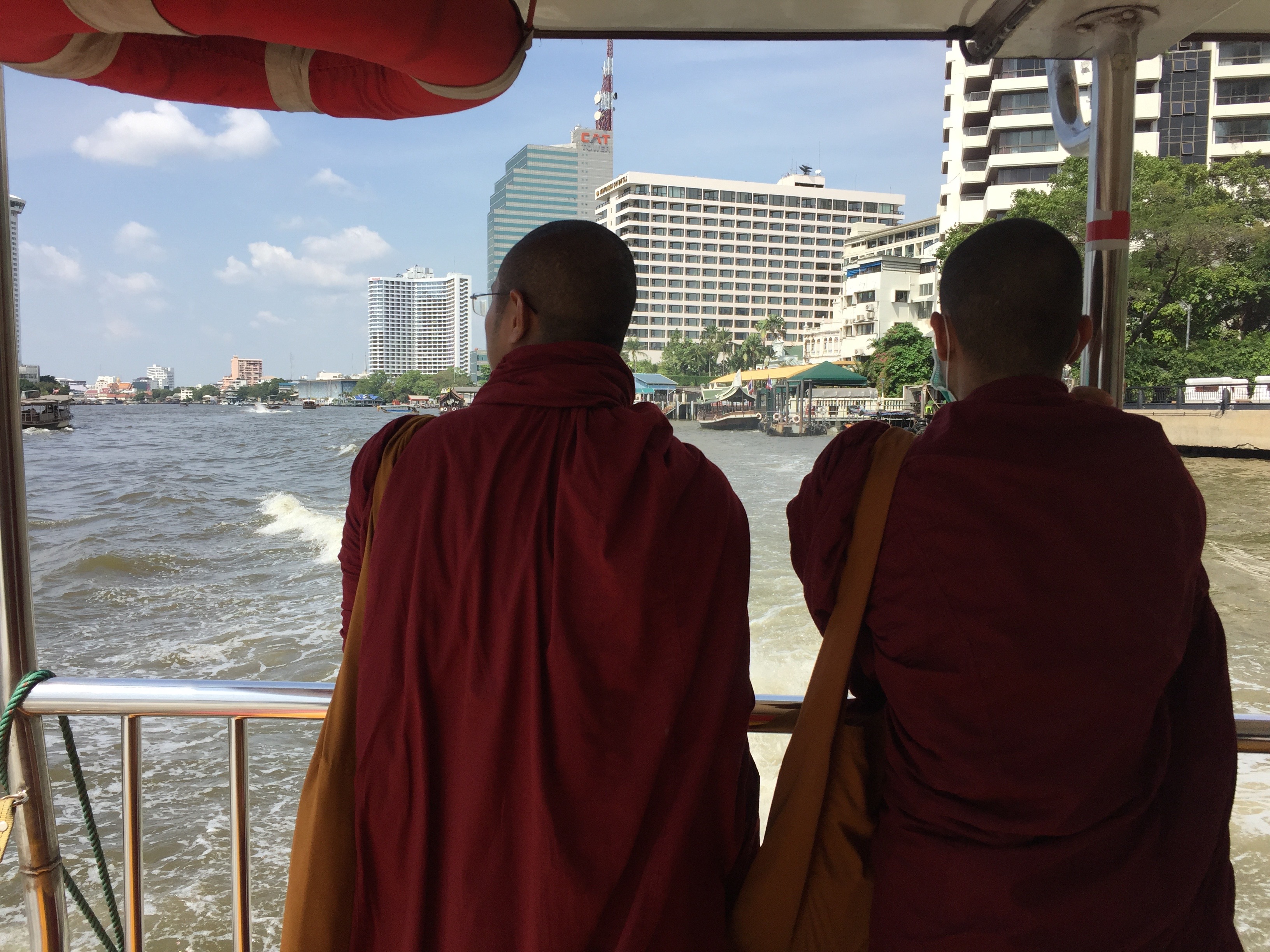 Buddhist monks traveling by river in Bangkok
Buddhist monks traveling by river in Bangkok
My experience in the two countries only convinces me further of the opinion that the ASEAN nations will produce stronger startups by working as a collective rather than operating within their own countries. A combination of the creative thinking of the Thais with the unwavering work ethic and technical skills of the Vietnamese, incubated in the business haven of Singapore and marketed across the ASEAN population… now that might be a business worth betting on.
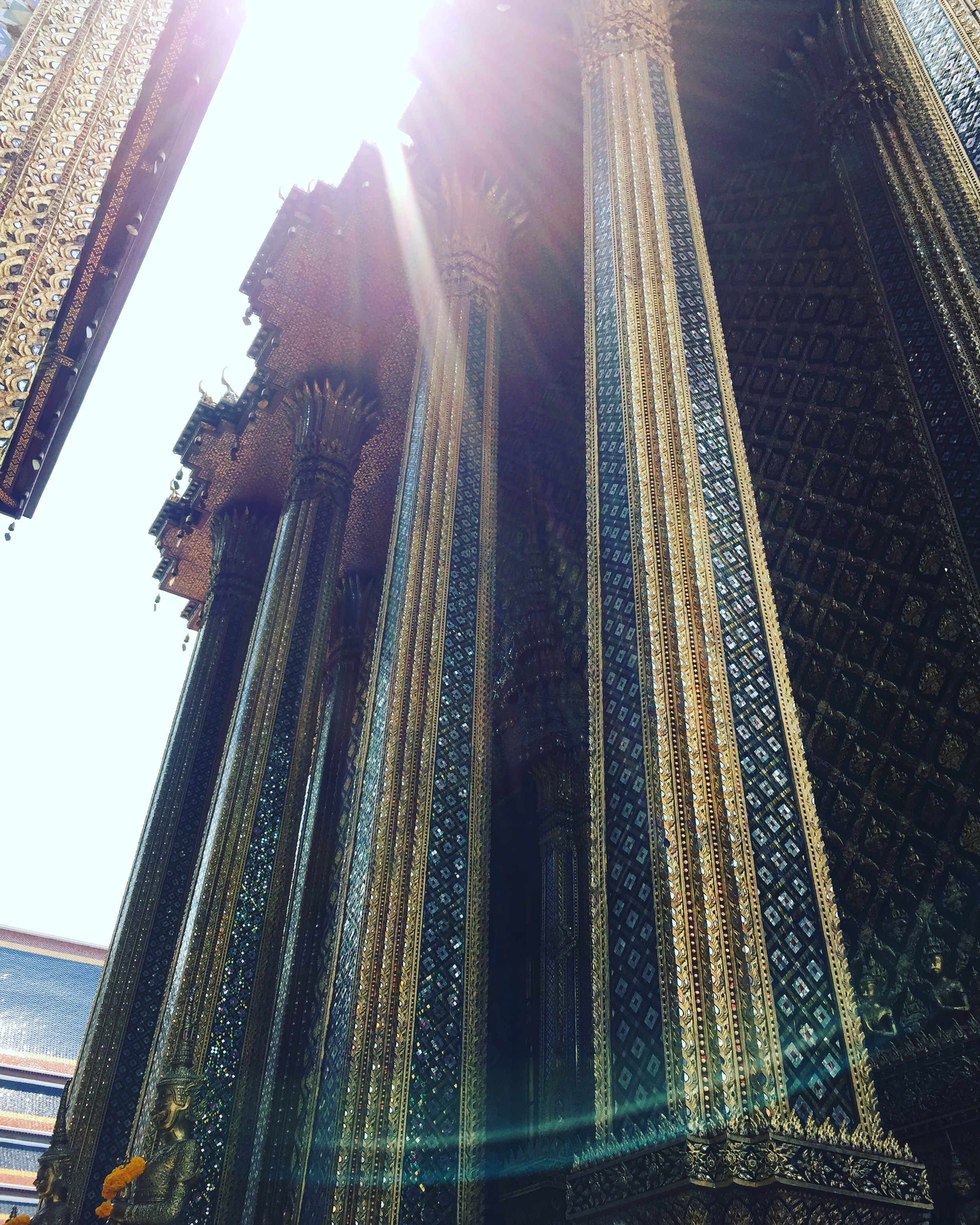 Temple of the Emerald Buddha, Bangkok
Temple of the Emerald Buddha, Bangkok